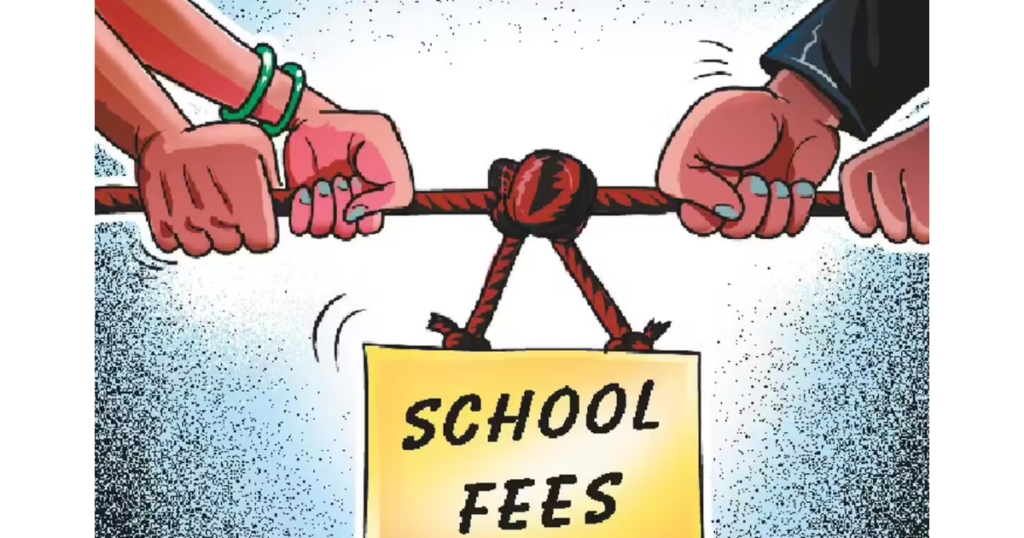Delhi Govt has brought all 1,700 private schools under a new fee regulation law, giving parents veto power, strict penalties for violations, and greater transparency.
In a major decision aimed at curbing arbitrary fee hikes and ensuring greater transparency in the education system, the Delhi government has brought all 1,700 private schools in the capital under a new fee regulation law. Education Minister Ashish Sood announced the move during a ‘Parents’ Town Hall’ in Janakpuri on Friday, where nearly 200 parents were present.

A Long-Awaited Reform
The new law, titled the Delhi School Education (Transparency in Fixation and Regulation of Fees) Bill, 2025, was passed during the Monsoon Session of the Assembly. For decades, only about 300 private schools in Delhi were covered under the 1973 rules for fee regulation, leaving the majority of schools free to increase fees at will.
Minister Sood said the latest bill closes this loophole by extending fee regulation to all private schools across the city. “Now, all private schools in Delhi will come under the ambit of fee regulation,” he declared, calling the move a landmark reform to protect parents from unjustified fee hikes.
Parental Role in Decision-Making
One of the most significant changes under the new law is the active participation of parents in school fee decisions. Committees at the school, district, and appellate levels will be formed, comprising parents, teachers, school management, and government representatives.
- School-level committees must decide on fee proposals by July 15.
- District-level committees will finalize their review by July 30.
- Final decisions must be settled by September each year.
If disputes are not resolved within 45 days, the matter will automatically be referred to an appellate committee for review.
Importantly, parents will now have veto power in the committees, giving them a stronger say in how much schools can charge.
Penalties for Non-Compliance
To prevent violations, the law introduces strict penalties for schools that attempt to bypass the rules.
- Schools that raise fees without prior government approval will face fines ranging from ₹1 lakh to ₹10 lakh.
- If schools fail to refund excess charges, penalties will be doubled.
Additionally, the Director of Education has been granted powers equivalent to those of a sub-divisional magistrate to ensure uniform and strict action against violators.
Ending Arbitrary Fee Hikes
Parents attending the Town Hall welcomed the announcement, as many have long complained about sudden and steep fee hikes by private schools. Minister Sood reassured them that the new framework was drafted after detailed consultations with parents and education experts.
The law seeks to end the commercialization of education by holding schools accountable and ensuring that fee structures are transparent and justified.
Minister’s Criticism of Past Policies
Sood also used the occasion to criticize previous governments for failing to build a transparent system for regulating private school fees. He said that while some administrations had claimed to bring an “education revolution,” they had not truly improved the condition of government schools.
According to him, many parents turned to private schools because public education facilities were neglected. The new law, he stressed, is a step toward restoring trust in the system and protecting the rights of parents and students.
What This Means for Parents
For parents across Delhi, this new law brings hope that their voices will finally be heard in decisions that directly affect their financial planning and their children’s education. With structured timelines, dedicated committees, and penalties for violations, the framework offers a system of checks and balances that was missing for decades.
By bringing all 1,700 private schools under regulation, the Delhi government is ensuring that every parent—regardless of which school their child attends—will benefit from the protection of the law.
The Delhi School Education (Transparency in Fixation and Regulation of Fees) Bill, 2025 marks a turning point in the city’s education policy. By extending fee regulation to every private school, empowering parents with a real voice, and enforcing strict penalties for violations, the law sets out to make education more transparent, fair, and student-friendly.
As Minister Sood said, the law is not just about controlling fees—it is about ending the commercialization of education and putting students and parents first.
Google Cloud and DU Launch 5-Year Program for Next-Gen Talent –